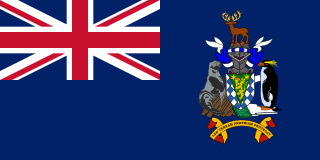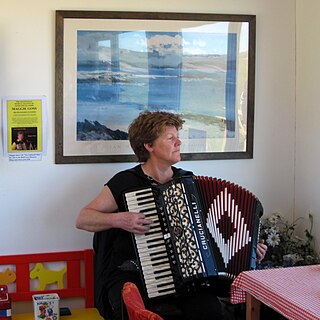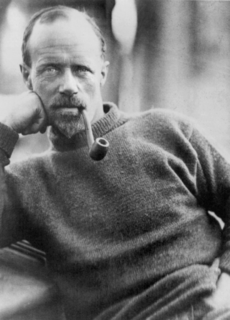Related Research Articles
The economy of the Falkland Islands, which first involved sealing, whaling and provisioning ships, became heavily dependent on sheep farming from the 1870s to 1980. It then diversified and now has income from tourism, commercial fishing, and servicing the fishing industry as well as agriculture. The islands use the Falkland pound, which is backed by sterling.

South Georgia and the South Sandwich Islands (SGSSI) is a British Overseas Territory in the southern Atlantic Ocean. It is a remote and inhospitable collection of islands, consisting of South Georgia Island and a chain of smaller islands known as the South Sandwich Islands. South Georgia is 165 kilometres (103 mi) long and 35 kilometres (22 mi) wide and is by far the largest island in the territory. The South Sandwich Islands lie about 700 kilometres (430 mi) southeast of South Georgia. The territory's total land area is 3,903 km2 (1,507 sq mi). The Falkland Islands are about 1,300 kilometres (810 mi) west from its nearest point.

The history of Antarctica emerges from early Western theories of a vast continent, known as Terra Australis, believed to exist in the far south of the globe. The term Antarctic, referring to the opposite of the Arctic Circle, was coined by Marinus of Tyre in the 2nd century AD.

Stanley is the capital of the Falkland Islands. It is located on the island of East Falkland, on a north-facing slope in one of the wettest parts of the islands. At the 2016 census, the town had a population of 2,460. The entire population of the Falkland Islands was 3,398 on Census Day on 9 October 2016.

Elephant Island is an ice-covered, mountainous island off the coast of Antarctica in the outer reaches of the South Shetland Islands, in the Southern Ocean. The island is situated 245 kilometres north-northeast of the tip of the Antarctic Peninsula, 1,253 kilometres west-southwest of South Georgia, 935 kilometres south of the Falkland Islands, and 885 kilometres southeast of Cape Horn. It is within the Antarctic claims of Argentina, Chile and the United Kingdom.

The Scotia Sea is a sea located at the northern edge of the Southern Ocean at its boundary with the South Atlantic Ocean. It is bounded on the west by the Drake Passage and on the north, east, and south by the Scotia Arc, an undersea ridge and island arc system supporting various islands. The sea sits atop the Scotia Plate. It is named after the expedition ship Scotia. Many icebergs melt there.

The culture of the Falkland Islands is essentially analogous to that of British culture. The Falkland Islands have a large non-native born population, mainly white and from England, but also from Saint Helena.

The Imperial Trans-Antarctic expedition of 1914–1917 is considered to be the last major expedition of the Heroic Age of Antarctic Exploration. Conceived by Sir Ernest Shackleton, the expedition was an attempt to make the first land crossing of the Antarctic continent. After Roald Amundsen's South Pole expedition in 1911, this crossing remained, in Shackleton's words, the "one great main object of Antarctic journeyings". Shackleton's expedition failed to accomplish this objective, but became recognized instead as an epic feat of endurance.

HMS Endurance was a Royal Navy ice patrol vessel that served from 1967 to 1991. She came to public notice when she was involved in the Falklands War of 1982. The final surrender of the war, in the South Sandwich Islands, took place aboard Endurance.

Christ Church Cathedral, on Ross Road in Stanley, Falkland Islands, is the southernmost Anglican cathedral in the world. It is the parish church of the Falkland Islands, South Georgia and the British Antarctic Territories. The Parish of the Falkland Islands is part of the Anglican Communion. The rector of the cathedral is under the ordinary jurisdiction of the Bishop of the Falkland Islands; since 1978, this office has been held ex officio by the Archbishop of Canterbury, who is both ordinary and metropolitan for the small autonomous diocese. In practice, authority is exercised through a bishop-commissary appointed by the Archbishop of Canterbury, and known as the Bishop for the Falkland Islands.

John Robert Francis Wild, known as Frank Wild, was an English sailor and explorer. He participated in five expeditions to Antarctica during the Heroic Age of Antarctic Exploration, for which he was awarded the Polar Medal with four bars, one of only two men to be so honoured, the other being Ernest Joyce.

The history of South Georgia and the South Sandwich Islands is relatively recent. When European explorers discovered the islands, they were uninhabited, and their hostile climate, mountainous terrain, and remoteness made subsequent settlement difficult. Due to these conditions, human activity in the islands has largely consisted of sealing, whaling, and scientific surveys and research, interrupted by World War II and the Falklands War.
The British Antarctic Survey (BAS) is the United Kingdom's national polar research institute. It has a dual purpose, to conduct polar science, enabling better understanding of global issues, and to provide an active presence in the Antarctic on behalf of the UK. It is part of the Natural Environment Research Council (NERC). With over 400 staff, BAS takes an active role in Antarctic affairs, operating five research stations, two ships and five aircraft in both polar regions, as well as addressing key global and regional issues. This involves joint research projects with over 40 UK universities and more than 120 national and international collaborations.
Cape Royds is a dark rock cape forming the western extremity of Ross Island, facing on McMurdo Sound, Antarctica. It was discovered by the Discovery Expedition (1901–1904) and named for Lieutenant Charles Royds, Royal Navy, who acted as meteorologist on the expedition. Royds subsequently rose to become an Admiral and was later Commissioner of the Metropolitan Police, London. There is a hut at Cape Royds built and used by Ernest Shackleton and his team during their 1907–1909 expedition.

Commander Joseph Russell Stenhouse, DSO, OBE, DSC, RD, RNR (1887–1941) was a Scottish-born seaman, Royal Navy Officer and Antarctic navigator, who commanded the expedition vessel SY Aurora during her 283-day drift in the ice while on service with the Ross Sea Party component of Sir Ernest Shackleton's Imperial Trans-Antarctic Expedition in 1914–17. After Aurora's escape from the ice he brought her safely to New Zealand, but was thereafter replaced as the vessel's commander. He later served with distinction in the Royal Navy during both World Wars.

Penguin News is the only newspaper produced in the Falkland Islands. It is published every Friday and provides news and features about the islands.

The Falkland Islands have a complex history stretching over five hundred years. Active exploration and colonisation began in the 18th century but a self-supporting colony was not established till the latter part of the 19th century. Nonetheless, the islands have been a matter of controversy, as due to their strategic position in the 18th century their sovereignty was claimed by the French, Spaniards, British and Argentines at various points.

Dennys Jack Valentine McDonald-Hobley was one of the earliest BBC Television continuity announcers, appearing on screen from 1946 to 1956.
The Falkland Islands Football League (FIFL), Branded Stanley Services Ltd. Football League is the national governing body of football (soccer) in the Falkland Islands. The association operates the national team and the Stanley Services League, the only domestic league on the islands. They also sponsor an all-star team from the league, called Stanley F.C. who occasionally play friendly matches against stationed troops on the islands and Royal Navy makeshift teams.

Edward Beveridge Binnie was the second resident magistrate of South Georgia, serving from October 1914 to April 1927, during which time he resided at King Edward Point.
References
- ↑ King's College London Special Collections: About the Falkland Islands magazine
- ↑ King's College London Special Collections: The Falkland Islands magazine: Contents
- ↑ Rev. C. McDonald Hobley. The Falkland Islands of South America. The Cathedral Press, Stanley, 1917.
- ↑ The Penguin, Copac catalogue entry
- ↑ Falkland Islands weekly news, Copac catalogue entry
- ↑ Falkland Islands monthly review, Copac catalogue entry